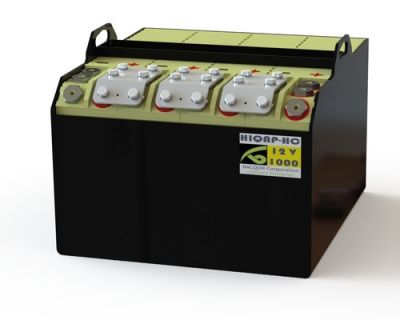Balqon introduces HIQAP lithium-ion batteries for solar storage
 As solar power spreads a key issue it will continue to face is ‘What do I do when the sun’s not shining?’ Part of the solution is storage, but that raises it’s own questions, like: ‘Is storage cost-effective? Will it last?’ That’s Balqon Corp. wants to be part of the solution for. The company announced it’s HIQAP lithium ion batteries are now available to provide backup for photovoltaic arrays.
As solar power spreads a key issue it will continue to face is ‘What do I do when the sun’s not shining?’ Part of the solution is storage, but that raises it’s own questions, like: ‘Is storage cost-effective? Will it last?’ That’s Balqon Corp. wants to be part of the solution for. The company announced it’s HIQAP lithium ion batteries are now available to provide backup for photovoltaic arrays.
The company is offering its 12, 24, and 48 volt battery systems and controllers at a price that is cost-competitive with lead-acid deep cell batteries. “We’re actually slightly lower-cost than lead-acid batteries. Plus you have the double-the-life benefits,” said Balwinder Samra, CEO of Balqon. He explained that the lifespan of lithium-ion batteries are calculated in a different manner than lead-acid batteries and have a longer usable lifespan, which he puts at 10 years.
Balqon has primarily been in the transportation sector, making a number of fully electric commercial vehicles like the XE 30 and mule for inner city and short hauling purposes. More recently it started offering its HIQAP batteries for other purposes, according to Samra. “We’ve been selling HIQAP batteries for 8 months, mainly 80 percent went to the telecom industry,” he said. The telecom industry, he said, is using the batteries to provide energy storage alongside generators to ensure that the systems would still work in the wake of an emergency like Katrina. The companies have used or upgraded to the lithium ion batteries because they are more efficient, can help reduce the amount of time the generator is running to charge the batteries and helps offset peak energy and other costs.
The same can be applied to photovoltaics and wind, according to Samra. The batteries don’t require any pre-soak period for charging like lead-acid batteries do and with their high discharge rate of 3 ca, they can allow a 40 kilowatt system to work like a 100 kilowatt system, according to Samra.
At this point the batteries are mainly being deployed in small commercial applications. “We are mainly targeting the people who use industrial packs and large-amp hour capacities, we’re specifically targeting people using 600 amp hours or more,” Samra said. At those sizes the batteries are cost-competitive with deep-cycle lead-acid batteries.



